Guest post: Questioning Craig’s “Trinity Monotheism” – Part 1
“…in Dr. Craig’s view…the only true god would be something other than the one who Jesus identified as the only true god, as his own god, and as the god of his followers.”
“…in Dr. Craig’s view…the only true god would be something other than the one who Jesus identified as the only true god, as his own god, and as the god of his followers.”
Perhaps the greatest issue for Social Trinitarians with respect to the Holy Spirit is “his” personhood.
Here is a guest post by Sir Anthony Buzzard. In it, he discuses what many would consider an obvious point, though some ignore or deny it: that the theology of Bible-era Judaism is monotheistic in a way that implies that the one God just is a certain mighty self. In Mark 12, Jesus simply affirms that theology. It is standard information in all the… Read More »Jesus’s Jewish error?
This is a guest post by Mr. Mario Stratta, a frequent commenter on this blog. He works in electronic engineering in Italy, and blogs on theological topics as “Miguel de Servet” at beliefnet. – Dale In the OT we find an obscure reference to the “eternal arms” of God: “The everlasting God is a refuge, and underneath [you] are [his] eternal arms …” (Deut 33:27)… Read More »Word and Spirit: the “Everlasting Arms” of God
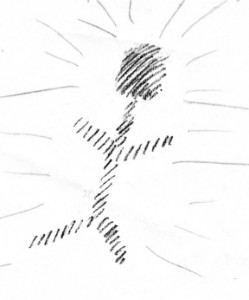
In the last post, I explained that Nestorians believe that a complete individual human nature is indiscernible from an individual human person.
Monophysites also take this idea very seriously. In fact, the Monophysite takes very seriously the more general claim that a complete individual nature of any kind is indiscernible from the corresponding individual that belongs to that kind (for instance, a complete individual cow-nature just is the individual cow in question). So if there are two natures in Christ, then there will be two individuals that correspond to each of those natures.
But the Monophysite does not want to say that there are two persons in Christ, so he will insist that there is just one nature in Christ. That way, there will just be one person. But since Christ is both human and divine, this one nature must be a special hybrid of divinity and humanity.
The strongest form of Monophysitism would claim that this hybrid Christness-nature has all divine properties, and all human properties. This, however, is incoherent, for it would amount to two persons as well. After all, having all the divine properties is sufficient for membership in God’s-kind, and having all human properties is sufficient for membership in human-kind. There would, then, still be two natures, which contradicts the initial claim that there is just one (allegedly) hybrid nature.Read More »Christology and Heresy 5 – Monophysitism Proper (JT)
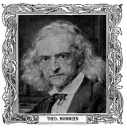
In the last post, I explained that an individual human nature is indiscernible from an individual human person.
The Nestorianism takes this point very seriously. As she sees it, if the Word (= the second person of the Trinity) assumes a complete individual human nature, then the Word assumes a discrete human person too, for a complete individual human nature is completely indiscernible from a discrete human person. But the Word is already a discrete person, namely a divine person, so the question is this: is the divine person identical to the assumed human person?
Read More »Christology and Heresy 4 – Nestorianism Proper (JT)
In the last post, I classified Monophysitism, Chalcedonianism, and Nestorianism. All three of these must grapple with a basic philosophical issue, namely this: a complete indvidual human nature brings along with it everything required for being a discrete human person. Note that ‘individual human nature’ does not mean the humanity in the human in question (readers of scholastic philosophy are often tempted to think that).… Read More »Christology and Heresy 3 – The basic philosophical issue (JT)
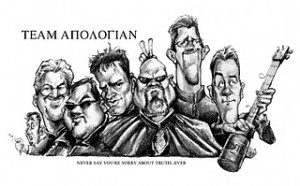
The Council of Chalcedon (451 CE) condemned Monophysitism and Nestorianism. The following table helps to classify Monophysitism, Nestorianism, and Chalcedonianism.
Nestorianism: 2 natures, 2 persons
Chalcedonianism: 2 natures, 1 person
Monophysitism: 1 nature, 1 person
Read More »Christology and Heresy 2 – Monophysites, Chalcedonians, and Nestorians (JT)
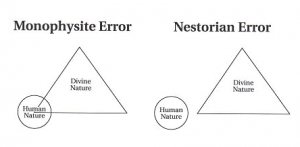
These days, when analytic philosophers of theology talk about the Incarnation, they often say things like ‘if such-and-such, then such-and-such, but that would be Nestorianism’. The implication, of course, is that landing oneself in Nestorianism would be a very bad thing.
But why? Perhaps a lay person might want to avoid Nestorianism because they were told it was a ‘heresy’. But a hard-core Christian philosopher, I think, would want to be more explicit about saying just what Nestorianism is, and provide some reason for why they want to avoid it (rather than just asserting that some position is Nestorian).
Read More »Christology and Heresy 1 – What is Nestorianism and Monophysitism? (JT)

After his initial argument from perfect love for a Trinity of persons, Richard tries to support it by a brief argument from perfect happiness. Here I wish to summarize what I take to be this confirming argument from the plenitude of happiness. [Keep in mind that ‘plenitude’ has that particular meaning of a property of a substance that is not from another substance, but all other substances are from it.] Richard argues that if we are committed to the claim that God is perfectly happy, then we should also be committed to the claim that God is a Trinity of persons. Read More »Richard of St. Victor 10 – Perfect Happiness Requires Perfect Love (Scott)

In this post I’d like to focus on Richard’s initial argument for why God must be a Trinity of persons. Thus far in his argument he has argued for two divine persons, and now adds a further line of argument to show that God is in fact a Trinity and not a Binity of persons. Why must God be a Trinity of persons? Richard argues from his notion of perfect love.Read More »Richard of St. Victor 9 – Perfect Love Requires Three Persons (Scott)

Richard of St. Victor is well known for talking about love, and how awesome it is. It might surprise a few people who have only read the popular English translation of Book 3 (the love/ethics? book) that On the Trinity contains six books. The English translation has brought attention to what some contemporary (continental-esque) philosophers would call Richard’s ‘erotics’. What remains to be seen is whatever he says in Books 1, 2, 4, 5, and 6. In this post I’d like to focus on one theme in these other books, which I’ll call Richard’s Constitutional Latin Trinitarianism (= CLT). At the start I must say that I am claiming that Richard suggests a constitutional model of the Trinity and not that he straightforwardly proposes one. At least, Richard can be read to propose such a model–after all, certain later scholastics like Henry of Ghent seem to have read Richard in that way.
Read More »Richard of St. Victor 8 – A Proposed Constitutional Trinitarian Taxonomy (Scott)
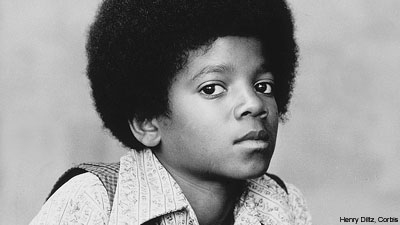
Up to this point in Book 3 Richard has told us several things about love (caritas). We have wondered at his saying there isn’t a perfectly good person if he doesn’t love. We have sorted through some necessary conditions for love such that we wonder whether a perfectly good person p must love another person q if p is to be perfectly good. You might say we’ve been contemplating some divine ethics, or aesthetics, or whatever.
In the previous post I suggested how we might interpret what Richard means by saying (two) divine persons are equal and similar to one another, namely the divine persons have the same disposition of love and the same acts of love (see [T4’] and [T5’]). In the next part of Richard’s argument he returns to his metaphysics of the divine substance which he discussed in Books 1 and 2.Read More »Richard of St. Victor 7 – The Same Divine Substance (Scott)
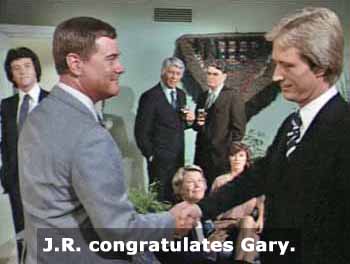
In De Trinitate Book 3.7 Richard summarizes some of what comes beforehand. We have learned that supreme goodness requires supreme love (i.e. supreme love is a necessary condition for supreme goodness), and that supreme love requires more than one person. If supreme love were only self-love, then the total state of affairs “one divine person has self-love” is not as perfect a state of affairs as another total state of affairs, namely “two persons have self-love, and each loves the other person.” Thus,
If there is supreme love, then there is a plurality of persons.
Likewise, Henry infers from what he takes to be the nature of supreme love to entail the equality of the persons in question.
If there is supreme love, then there is an equality of persons.
Below I try to explain just what all this means.
Read More »Richard of St. Victor 6 – Supreme Love Only Among Equals, Again (Scott)

My other blog gig is as the Theist on Objectivist v. Constructivist v. Theist. This blog was begun to post the newspaper columns (in our local paper) in which my collegues Bruce Simon (liberal, aka “Constructivist”) and Steve Kershnar (libertarian, aka “Objectivist”) debated points of politics and morality. When Bruce no longer had the time, I stepped in as the Theist, and debated Steve mostly on moral and religious questions in a series of sort of debate style opinion columns. Steve is a good friend and colleague, and we’ve frequently butted heads on all sorts of things since I was hired at Fredonia in 2000. He’s sharp, well-read, funny, and has a winning personality. To say he’s well-published would be an understatement – see his whopper c.v. He’s written on many questions of justice, public policy, ethics, and philosophy of religion. His work is original, rigorous, and informed by relevant empirical research. In addition his his philosophy PhD (he’s a proud, proud Cornhusker) he holds a law degree from Penn. In his inimitable trouble-making style, he decided to write a column on the Trinity leading up to Christmas, which we’re please to cross-post from here. – Dale
THE MYSTERY OF THE TRINITY
The Objectivist [Steve Kershnar]
Dunkirk-Fredonia Observer
December 21, 2008

“If I think of pork-products, is that a self-conscious act of thinking?”
What follows is the first of a two part post.
Part 1: The Divine Word as Divine Practical Knowledge
Part 2: If God Weren’t a Trinity, then Creatures Would Necessarily Be Created.
Part 1
In pre-Nicene days (and post-Nicene days) there was much debate about the ontological status and (narrative) identity of the Son of God. One branch of discussion focused on the Apostle John’s claim that the Son of God is the Word of God. In various places in the New Testament the Son of God is identified as the agent through whom the Father creates the world, which is equivalent with saying the Word of the Father and the Father create creatures.
From these sources a ‘Logos-theology’ was born (that you can read about in the history books). The Logos is that by which creatures are created, have their existence and persistence in existing.
Now, Henry takes up the question as to whether the Word is ‘practical knowledge’. Henry generally gets his definitions of kinds of knowledge from Aristotle. From Aristotle we learn about three kinds of knowledge: speculative knowledge, practical knowledge and productive knowledge.

“Is there any Son who does not cause His Father to become a Father and vice versa?”
Here I wish to briefly summarize what I take to be Henry’s position on the question: is the Father constituted by the (personal) property of being ‘ungenerated’ (ingenitum)? Henry’s discussion of this comes from his Summa Quaestionum Ordinariarum 57.1.
Henry engages in a lengthy discussion of ways the word ‘ingenitum’ (not generated) or ‘innascibile’ (not able to be born) can be predicated of the Father, whether negatively, privately, or positively. The upshot of these distinctions is to ask about the precise nature of this property ‘ungenerated’. Is it saying what the Father is not (negation), or is it saying the Father lacks some further property and is potentiality to receive some new property (privation), or is it saying there is some positive property the Father really is constituted by?
Henry rejects predication of the property ‘ingentium’ to the Father by negation and by privation; instead he opts for predication of a positive property. What then is this positive property that the Father has/is?
Read More »HoG: “What does it mean to say the Father is ungenerated?” (Scott)

“My god Spock! Is this the apex of human intellectual production?” “No Captain, look within, do you smell that?”
I apologize for the delay in posting. I have been busy with, among other things, my own work.
In the previous post, I enumerated 40 lines of premises and conclusions that generally summarizes Henry’s philosophical psychology of the Trinity. There are one or two things that ought to be clarified.
I have posted some responses to Dale’s post in the Comments section of his post.
I would like to elaborate on two issues in this post.
1. Why must the divine intellect be perfectly actual? (pace Dale’s 2nd objection)
2. Why must the divine intellect have two powers, an operative power and a productive power?
In regards to 1, Henry generally follows Anselm’s perfect being theology program. In this program, when we attribute some property to God we should follow the rule: ‘whatever it is simply better to have than not have we should attribute to God’. This property that it is simply better to have than not to have in medieval speak is called a ‘pure perfection’. A pure perfection is some property that it is simply better to have than not to have it. A pure perfection is some property x that is not considered as a pure perfection with regard to some species-nature. It is not a question of whether ‘it is better for my fish Nigel to be a Ninja or not’, but whether it is simply better to be a Ninja or not. A comparison to some species is not at issue here. For example, if it is better to be wise than not be wise, we should say that God is wise. If it is better to be loving than not to be loving, we should say that God is loving. If it is better to be stupid than not stupid, we should attribute ‘being stupid’ to God. But, our intuitions lead us to think that being wise and being just are simply better to have than not to have; yet being stupid is something we wouldn’t attribute to God because it is actually better to not be stupid, than to be stupid.
Read More »HoG: Intellectual Production of the Word (Scott)
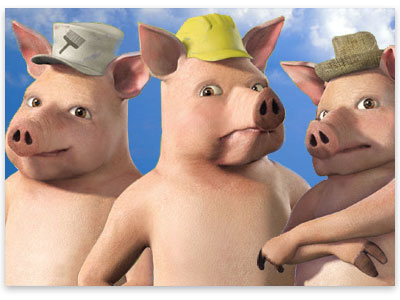
“Will the real H.o.G. please stand up?”
Henry of Ghent was an eclectic theologian. He fancied new theories and adored old theories. When it comes to the doctrine of the Trinity, Henry was a glutton for old and new doctrines. What was old that he liked? His favourite theologian was Augustine, and his favourite book titled De Trinitate was Augustine’s. Of course, Henry didn’t just read Augustine, he read other De Trinitate texts: Boethius, Ambrose, Hilary, Richard of St. Victor and learned important lessons from these. The primary theological source for psychological doctrines applied to the Trinity comes from Augustine (who contemplated such models as the Father as Memory, Son as Intelligence/Word, and Holy Spirit as Will/Love). Further, Henry takes Richard of St.Victor’s claim about the importance of ‘mutual love’ (of the Father and Son) and applies it as the principiative principle for the production of the Holy Spirit. A ‘principiative principle’ is a fancy phrase for ‘productive power’. Henry seems to use it at times in distinction from a productive power for the production of created essences (e.g. human beings). Still, the the semantic range of this can be applied to ad intra divine productions, and ad extra creaturely productions.
Henry also fancied ‘new’ doctrines of human philosophical psychology, though he was critical of these. What he liked was Aquinas’s developed teaching about what a mental ‘Word’ is, namely, a product that an intellect can produce that is really distinct from the intellect and its operations. This ‘word’ inheres in the intellect as an accident. Further, Henry liked the notion that this product is some sort of ‘final’ act of the intellect. Of course, in the divine case the ‘Word’ won’t ‘inhere’ in the divine essence, but ‘subsist’ in its. This of course is ambiguous (and worthy of another post).Read More »H.o.G.: Philosophical Psychology at Play with the Father and Word/Son (Scott)
JT Paasch is a graduate student at Oxford, he’s originally from Utah. He earned a M.Div at Trinity Evangelical Divinity School (under Kevin Vanhoozer), then went to Oxford to work with Richard Cross on medieval trinitarian theology. His doctoral thesis is titled ‘The Logic and Metaphysics of the Trinity according to William of Ockham’. I’ve appreciated his thoughtful comments on some of my posts here. I thought the following one was post-worthy.
Be sure to check out his blog, the title of which is either (1) contradictory, or (2) an example of English (or Utahn?) dry humor. I say the charitable interpretation is (2). 🙂 – Dale
In the traditional western view of the trinity, e.g., as the likes of Augustine and Aquinas think, the divine essence basically functions as a nature. Read More »Guest post: JT Paasch on constitution trinitarianism